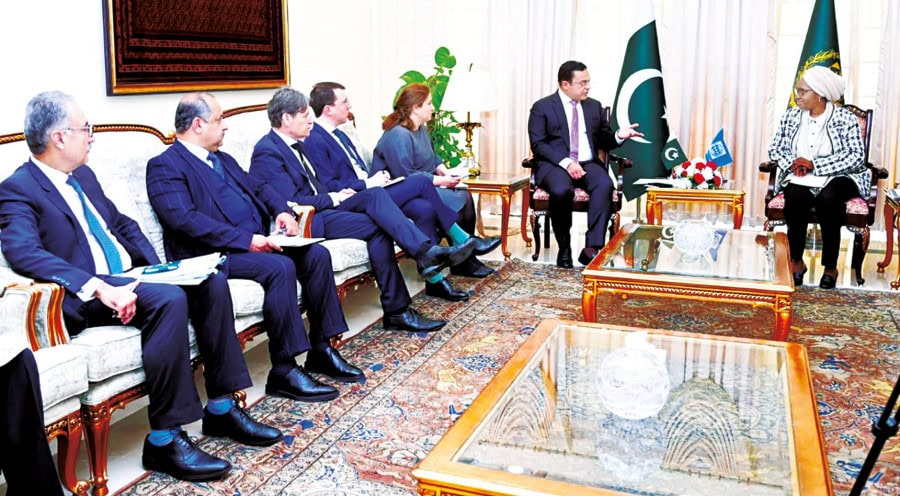Minister for Economic Affairs, Ahad Cheema, Monday welcomed a delegation from the World Bank Group, comprising Executive Directors and Alternate Executive Directors.
During the meeting, Cheema emphasized that privatizing State-Owned Enterprises (SOEs), particularly DISCOS, is a top priority for Pakistan.
He expressed appreciation for the World Bank’s third high-level delegation visit in a short span, seeing it as a testament to the institution’s confidence in Pakistan’s ongoing economic reforms and their strong partnership. This development highlights Pakistan’s efforts to strengthen its economic ties with international organizations like the World Bank, said a press release issued here on Monday.
He added that this visit aims to enhance understanding of Pakistan’s economic, political, social, and governance landscape while exploring opportunities for future development support under the newly launched Country Partnership Framework (CPF) for 2026-2035.
Minister Cheema outlined the government’s priority to privatize SOEs, recognizing that approximately one-third of these SOEs are strategic assets.
He reiterated the government’s goal to privatize the remaining SOEs in phases. In the first phase, the government is focusing on the privatization of power distribution companies (DISCOS), and in the second phase, Pakistan International
Airlines (PIA) and other SOEs are to be privatized. He shared that the government aims to privatize up to 50 SOEs over the next 3-4 years.
The minister also emphasized the critical challenges currently faced by Pakistan’s power sector, including high tariffs for consumers, significant losses in line efficiency, and the ongoing efforts to achieve full cost recovery for the sector.
He acknowledged that renewable energy resources and addressing line losses were among the main areas of focus for Pakistan’s energy strategy. Highlighting the ongoing digitalization efforts, Minister Cheema stated that Pakistan is making significant strides in the digital transformation of its economy. He mentioned that comprehensive research and review of digitalization models had been completed, and the country is now advancing towards end-to-end digitalization of its institutions.—APP










